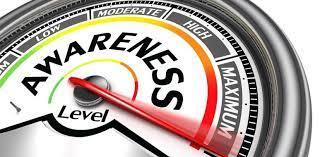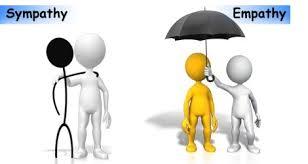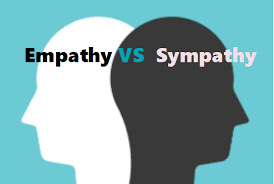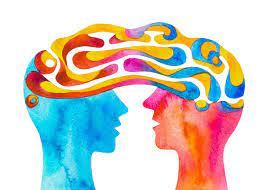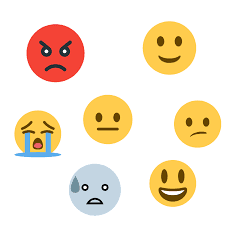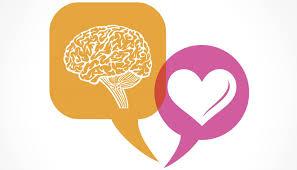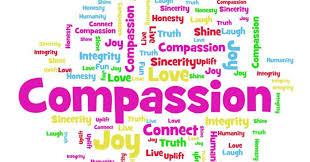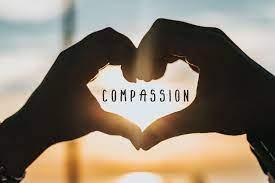FYI: Empathy And Sympathy Are Totally Different
Curated from: womenshealthmag.com
Ideas, facts & insights covering these topics:
10 ideas
·3.03K reads
21
Explore the World's Best Ideas
Join today and uncover 100+ curated journeys from 50+ topics. Unlock access to our mobile app with extensive features.
The Difference Between Empathy And Sympathy
One is better than the other in most situations.
Thought they were the same? You're not alone (an empathetic reaction) and sorry if this is jarring information for you (a sympathetic reaction). But the two emotions are totally different.
They feel different, when a person has empathy, they resonate with how the other person feels as a fellow and equal human being. Sympathy is pity. When someone pities someone else, they are looking down on that person.
28
582 reads
Situational Usage
Empathy and sympathy each have their own set of circumstances where one might be the best emotional reaction over the other. Sometimes, you might want to try to relate to someone on their level—and if you've ever been in their position, that may even come naturally. Other times, you might not be able to relate to what they're going through, especially in situations where it might not be appropriate or possible, like losing a parent, for example.
23
357 reads
Empathy vs. Sympathy, Explained
The biggest difference between empathy and sympathy is how much you are trying to connect with someone on a personal level in your interaction. Empathy is when you really listen for a feeling and try to relate to the feeling for a moment and you convey an understanding of that person’s feelings, whereas sympathy is focused on feeling sorry for someone and potentially even pitying them. You’re not working to understand how they feel; you’re putting yourself at a distance.
27
345 reads
What It *Actually* Means To Be An Empath
One example she gives to illustrate this difference: If a sympathetic person sees a houseless person, they might give that person change and go on about their day. An empathetic person, however, would spend time with a houseless person, maybe taking them for a meal, and attempt to connect with them on a human level.
25
324 reads
To break down the concept of empathy vs. sympathy further:
When you're expressing empathy...
- You try to connect with the person.
- You offer validating statements that let the person know it's okay to have these emotions.
- You might respond with phrases like, "I get it. You have every right to feel that way."
When you're expressing sympathy...
- You can't necessarily relate to the person's situation.
- Your statements put a little bit of distance between you and that person.
- You might respond with phrases like, "I feel sorry for you" or "You poor thing."
26
260 reads
When should you say you have empathy for someone?
The short answer? Almost always. By trying to relate your friend's feelings, you're not only validating them and their reaction; you're also letting them know that the emotional reaction they're having is okay—it's human. The key here is that the other person should then act on their feelings in an emotionally intelligent or constructive way. Empathy does not give them a free pass to respond however they may want.
23
246 reads
What Is Emotional Sobriety?
Empathy, helps a person feel less alone in their plight and feel connected and close to someone. This can help them feel that they’re more apt or able to solve their own problems.
You may not have gone through this person's exact situation, but you can tap into other moments in your life where you've experienced that emotion. Think more about relating to the feeling than trying to understand the situation itself. Feelings are universal...I know exactly how it feels to feel left out. I know exactly how it feels to feel put down. Trying to understand the feeling—that’s what you’re going for.
25
198 reads
When should you say you have sympathy for someone?
When you think you might be leaning toward sympathy or pity with a loved one, remember to relate to them through the feeling they're expressing. When was the last time you felt such a way, and what do you wish someone might've told you during that time? That can help guide you toward an empathetic response in appropriate situations.
24
217 reads
How does compassion play into all this?
Compassion is the basis of both sympathy and empathy. Leonard likes to think of compassion as "trying to understand and feeling for another person," which means it's a useful tool in both sympathetic and empathetic reactions. Sometimes, tapping into your compassionate side can help you bridge the gap between yourself and someone else. And any time you're trying your best to understand another person, says Leonard, you're doing something right.
23
205 reads
IDEAS CURATED BY
CURATOR'S NOTE
The Difference Between Empathy and Sympathy
“
Tom Joad's ideas are part of this journey:
Learn more about communication with this collection
How to set clear objectives
How to follow up after a meeting
How to manage time effectively
Related collections
Similar ideas
3 ideas
Why Too Much Empathy Can Actually Be Harmful
thoughtco.com
2 ideas
8 ideas
Why Empathy Is Important
verywellmind.com
Read & Learn
20x Faster
without
deepstash
with
deepstash
with
deepstash
Personalized microlearning
—
100+ Learning Journeys
—
Access to 200,000+ ideas
—
Access to the mobile app
—
Unlimited idea saving
—
—
Unlimited history
—
—
Unlimited listening to ideas
—
—
Downloading & offline access
—
—
Supercharge your mind with one idea per day
Enter your email and spend 1 minute every day to learn something new.
I agree to receive email updates


